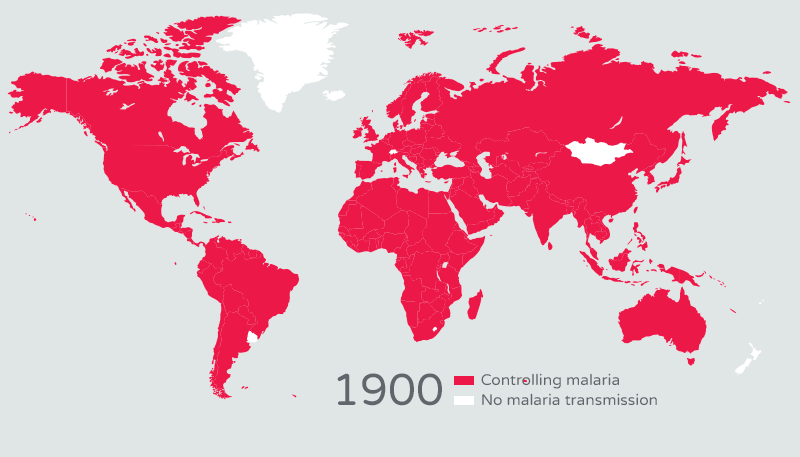
When Sir Richard Feachem, DSc(Med), PhD, founded the Global Health Group at UCSF Global Health Sciences (GHS) in 2007, he had a bold vision: eliminate malaria from the face of the earth. The worldwide global health community was skeptical, at best.
“Richard was willing to talk about eliminating malaria when most people thought resources should be spent on controlling the disease,” said Allison Phillips, deputy director of the Malaria Elimination Initiative.
Today, as Feachem and GHS celebrate the 10th anniversary of the Global Health Group (GHG), the idea that malaria can be eliminated is accepted by the World Health Organization, donors and other major malaria-fighting organizations. It is just one of a long list of accomplishments GHG can claim. Others include:
- Raising the profile of the role of the private sector in healthcare delivery in low- and middle-income countries
- Launching two regional initiatives to accelerate progress toward malaria elimination. The Asia Pacific Malaria Elimination Network, a collaboration among malaria programs and partner institutions from 18 countries in Asia Pacific. The Elimination Eight Regional Initiative is a similar organization spanning 8 countries in Southern Africa.
- Leading a seminal series in The Lancet on the technical, operational and financial requirements for malaria elimination
- Leading a Lancet Commission on Investing in Health
- Convening numerous high-level meetings on a wide range of global health issues, bringing together key influencers from different sectors
Feachem was the founding executive director of the Global Fund to Fight AIDS, Tuberculosis and Malaria when GHS founder Haile T. Debas invited him to return to UCSF and join GHS. “I knew I wanted to create significant change and create structures that can make an impact,” Feachem said. He had a fully formed vision: an action tank dedicated to translating bold new ideas into large-scale action to impact the lives of millions of people.
Focusing on impact rather than research and publishing within an academic setting was another bold move. But over the past ten years, research has been integral to making an impact, and GHG has raised more than $100 million in sponsored research and gifts. Publications have happened as well—more than 300, many first authored by staff and not just by faculty.
Beginning with a very small team and $5 million dollars from the Bill & Melinda Gates Foundation, GHG launched the Malaria Elimination Initiative (focusing initially on malaria elimination in South Africa, Swaziland, Namibia and Botswana) and the Private Sector Healthcare Initiative (researching the role of the private sector in healthcare delivery).
Today GHG has about 50 faculty, staff and students working on malaria elimination in more than 20 countries in Southern Africa and Asia Pacific.
Richard Nchabi Kamwi, Elimination 8 Regional Initiative (E8) Ambassador and former Minister of Health and Social Services in Namibia, attests to their impact.
“GHG has been a partner of the Elimination 8 Regional Initiative since day one,” he said. “GHG has been the engine that has supplied technical support and capacity building to the initiative, enabling the E8 to become the regional leader it is today. Because of the E8-GHG partnership, the E8 can now see the light at the end of the tunnel when it comes to malaria elimination.”
And the group continues to think and act boldly. “We are considered the elimination experts among malaria groups,” said Phillips. “And now we are pushing the malaria community to plan for global eradication.”
While malaria elimination is the focus for the majority of GHG faculty and staff, another team works with governments and health ministries to translate health and economic evidence into policy. Currently, the Evidence to Policy Initiative is conducting research and analysis to help countries that are transitioning to government funding for malaria elimination after years of financial support from the Global Fund and other international sources. GHG has developed a tool to help countries assess and mitigate the risks they face as they make this transition.
A second project has launched the International Collective Action for Health working group, which is analyzing the cost of developing all of the necessary drugs, vaccines, diagnostics, and other tools needed to rapidly improve the health of poorer people in poorer countries. “If we can understand the size of the financial need, we can help mobilize funding to develop lifesaving tools to make big gains in global health,” said Sara Fewer, MPP, MPH, who co-leads the GHG Evidence to Policy Initiative with Naomi Beyeler, MPH, MCP.
As GHG looks to the future, there is no shortage of global health issues to tackle. From articulating the health effects of climate change to generating new analyses to advocate for global health financing, GHG will approach the issues boldly and with a plan to have major impact across the globe.
To mark the anniversary, GHG is hosting a symposium, “The Global Health Group at 10 Years: Celebrating a Decade of Impact ➤Engineering the Future” on Thursday, October 19 at 2:00 pm in Byers Auditorium on the Mission Bay campus. Featured speakers include experts from the academic, corporate, philanthropic and diplomatic communities.